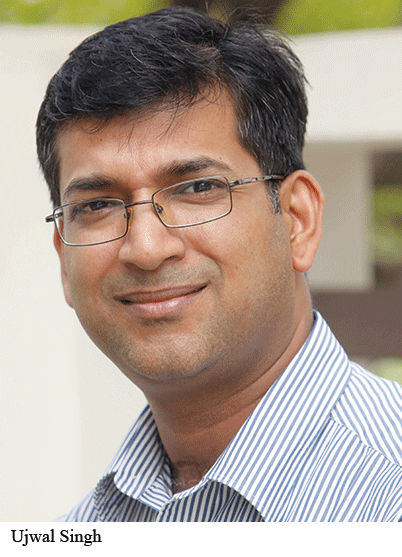 One of the unexpected benefits of the information technology, internet and social media revolutions sweeping the world is the huge outflow of data from a wide array of sources. From this phenomenon an entirely new industry has emerged: Big Data and Analytics. Essentially, this sunrise industry enables corporates and other organisations — including education institutions — to integrate data from diverse online and offline sources to develop comprehensive profiles of existing and potential customers.
One of the unexpected benefits of the information technology, internet and social media revolutions sweeping the world is the huge outflow of data from a wide array of sources. From this phenomenon an entirely new industry has emerged: Big Data and Analytics. Essentially, this sunrise industry enables corporates and other organisations — including education institutions — to integrate data from diverse online and offline sources to develop comprehensive profiles of existing and potential customers.
With corporate marketers hell-bent upon acquiring information about buyer behaviour and spending patterns, the annual revenue of big data analytics firms in India is set to explode to $2.3 billion (Rs.15,413 crore) in fiscal 2017-18, according to a joint study of the Delhi-based National Association of Software and Services Companies (Nasscom) and the global market intelligence firm Blueocean. According to IDC (International Data Corporation), the aggregate revenue of the big data and analytics industry is growing at an annual compounded rate of 26.4 percent, and the industry’s global revenue is expected to rise to $41.5 billion (Rs.275,700 crore) in 2018-19.
With the rising popularity of online education, this data explosion can be used to improve school and higher education effectiveness and support education research. Real-time, embedded-in-everyday-activities collection of children and youth data is being used to acquire complex, valuable information. Simple activities like gaming and online learning enable data accumulators and aggregators to collect vast amounts of data and for analysts to predict student and teacher learning outcomes, aptitudes and latent intelligences.
Predictive analysis. Collection of big data enables predictive analysis already being used by progressive schools to assess students’ academic progress and derive early-warning indicators based on students’ attendance, exam performance and behaviour to predict dropouts, on-time graduation, and college readiness. Predictive analysis empowers decision-makers in education institutions to make accurate, data-driven decisions for improved academic results.
Teachers can predict learning outcomes by tracking students’ progress in benchmark assessment tests and devise remedial education solutions for low-performing students. Similarly, student counsellors can recommend appropriate action for under-performing students and identify potential dropouts. Predictive analytics provides early warning signals to school managements and teachers enabling them to take quick action to implement remedial solutions. But all this is dependent upon quality and quantity of data acquired. The more data collected, better the chances of getting an accurate picture for making accurate predictions.
Student and teacher assessment. For education to be effective, teachers and students need to be well-informed about their progress on the continuous learning curve. For instance, if a school needs to know whether a particular student is ready for the next level, big data analyses can be of great help.
Likewise, teachers need to continuously increase their knowledge and upgrade their skills. Data analyses enable institutional managements to determine if a teacher is ready for promotion. Data analysis enables managements to assess if she understands core concepts and is ready to move to the next level of teaching.
Personalised learning. Personalised learning theory is based on (i) differential learning programmes for students and (ii) feedback which enables students to make informed judgements about what they’ve learnt, how well they’ve learnt, and what to learn next. Data crunching can pinpoint students’ interests, aptitudes and subject preferences to customise learning material to make curriculums simultaneously interesting and relevant.
Though at a nascent stage, personalised learning has made a significant impact on students’ learning outcomes and is here to stay. The various personalised learning systems are part of a much larger picture. But all of them start by identifying a significant educational problem that faculty and staff believe can be corrected. Well-designed personalised learning programmes tweak curricula to provide customised need-based support to students. Coterminously, personalised learning programmes enable faculty to teach innovatively by providing training and pedagogical support.
Giving students ownership of their learning and customising curricula to align with their interests and passions can make them feel valued and motivated. Investing in big data and analytics and new technologies in general, and customising learning programmes will empower school managements to improve institutional learning outcomes and reputation, and make K-12 education a joyful and emotionally rewarding experience.
(Ujwal Singh is vice-president, products (K-12) of Pearson India)